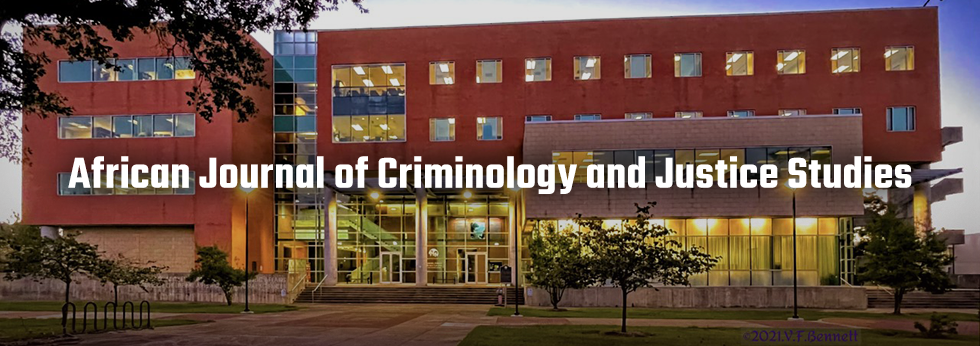Abstract
As should be expected, where the citizens of a society are unable to receive justice in the dominant legal system, they will seek out other avenues and processes to achieve justice. And, for many citizens, the extremity of an alternative justice process is unlikely to dissuade their quest for fairness if the citizens regard the alternative as a viable means for justice. The following problem statement guides this paper: In view of the official guarantees and enormous powers of the English-style law and justice in Nigeria vis-à-vis Nigeria’s indigenous systems and processes as well as the potential for abuses of the indigenous models, this article critically examines the implications of the alternative justice process demonstrated in Nigeria’s Ọkịja shrine incident in 2004. The paper is based on the case study method. Thus, without suggesting that all traditional religious shrines in Nigeria – or even Igbo – follow the same pattern as that of the Ọkịja shrine, the 2004 incident illustrates and helps to explain the persistence of such justice outlets. Consistent with a string of previous studies, this article expounds that on many law and justice subjects, the English colonial standards detract from the indigenous Nigerian norms in various communities. However, the paper is unique because it deduces that sometimes the divide between English law and indigenous Nigerian law yields extreme justice, such as happened in the Ọkịja shrine incident. In particular, the article offers nine major explanations for the persistence of the Ọkịja and similar shrines as case management avenues in various Nigerian communities. Without suggesting that the Ọkịja and similar shrines are suitable routes to justice, the paper concludes that as long as the official law and justice system fails to properly address the relevant subject matters and satisfactorily accommodate germane indigenous Nigerian law and justice ideas and standards, extreme versions of justice, such as that found in the Ọkịja incident, are likely to persist.
Recommended Citation
Okafo, Nonso
(2012)
"A Justice Void Filled: Explaining the Endurance of Extreme Tradition-Based Laws in Nigeria,"
African Journal of Criminology and Justice Studies: Vol. 6:
Iss.
1, Article 8.
Available at:
https://digitalscholarship.tsu.edu/ajcjs/vol6/iss1/8


